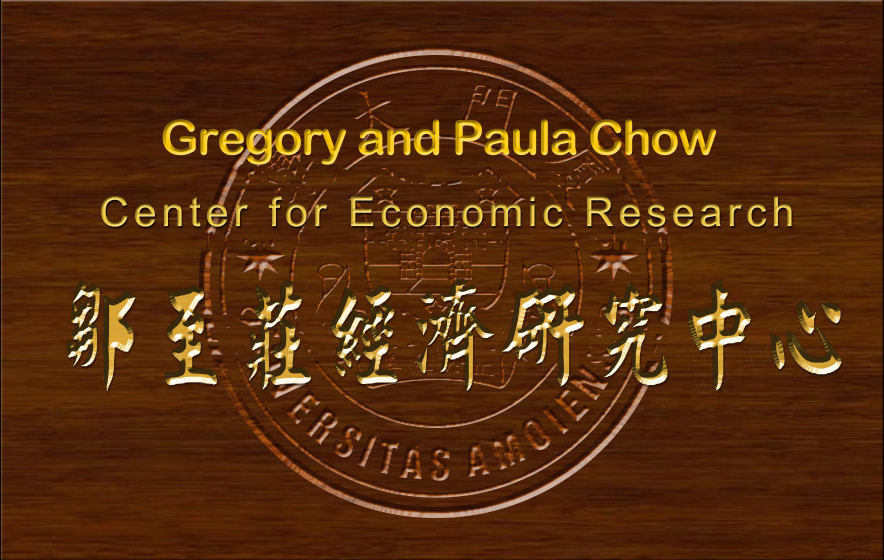The 6th Xiamen University International Workshop on Experimental Economics
On December 17, “The 6th Xiamen University International Workshop on Experimental Economics” was co-organized by Xiamen University's Ministry of Education Key Laboratory in Econometrics, the School of Economics & the Wang Yanan Institute for Studies in Economics. Professor Yinggang Zhou, vice dean of WISE gave an opening speech, in which he introduced the newly founded Gregory Chow Research Center and the Finance and Economics Experimental Laboratory (FEEL). He noted the importance of the conference in providing a platform for inspiring new ideas and furthering communication amongst the experimental research community.

The seminar lasted for two days. The key speakers were Christopher Anderson (University of Washington), Timothy Cason (Purdue University), Dirk Engelmann (Humboldt University) and Joel Sobel (University of California, San Diego). Over 120 participants joined the conference from all parts of the world. Eighty-one articles were presented throughout the conference in varied fields, including decision theory, game theory, development economics, environmental and resource economics, policy analysis, management science, marketing, political science and finance.
In recent years, WISE has been providing more support for research in the discipline of experimental economics. WISE has recruited an outstanding research team and aims to become a national first-class experimental economics and finance research center. The discipline has been developed rapidly. It has received funds from the Fujian provincial government, national research funding bodies, the MOE and has published articles in several internationally and nationally renowned journals. The conference is a biannual event, first started in 2010. It has made a significant contribution to the development of the Experimental Economics discipline at Xiamen University and nationally.
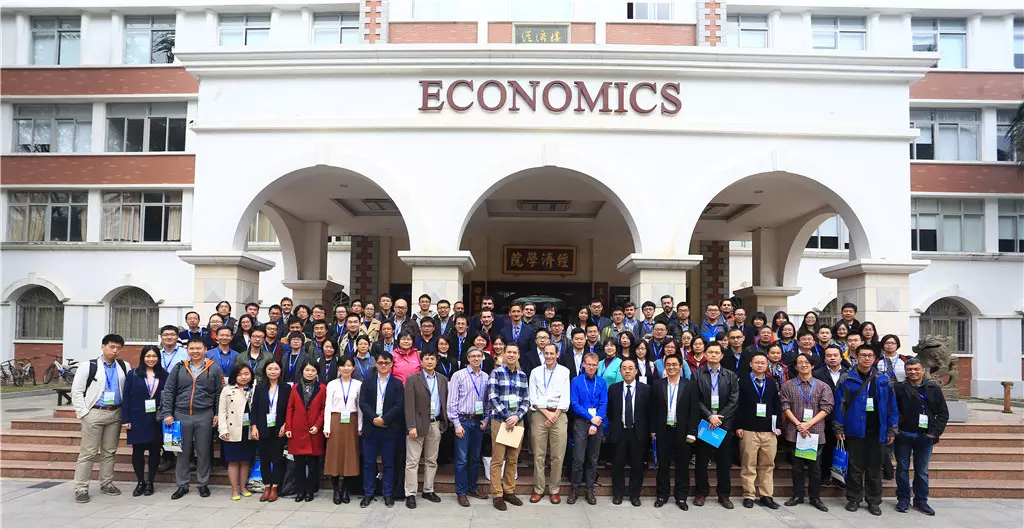
Dragon Boat Racing at Xiamen University
Every year in the 5th day of the 5th month according to the Chinese lunar calendar, Dragon Boat Festival (Duānwǔ jié 端午节) is celebrated in China, with activities honoring ancient poets and important philosophers. Traditional foods, such as sticky rice dumplings (Zòngzi 粽子) are served and are also an important part of the celebration. The Xiamen University Dragon Boat Club is a sports club that organizes boat racing training for students. Our Alumni, Renatto Aguilar, was an active member of this club during his time as a student at Xiamen University. We interviewed him to find out more about the club and about how it celebrated Dragon Boat Festival.

* Tell us more about Xiamen University’s Dragon Boat Club:
A. The Dragon boat Club is one of the biggest associations in XMU and every year it welcomes new students to join the team and join the annual competition.
*When do you guys start preparation for the competition?
A. At the beginning of the summer semester the team starts training for the big competition that takes place during the Dragon Boat festival in the late spring of the next year.
*Can you tell us more about the training?
A. The trainings are quite exhausting, especially at the beginning. They include strength and endurance exercises. Some of the members who start the training quit the team halfway through; most of them find the trainings a bit too hard. At the beginning, the trainings are 3 to 4 times a week and they increase in frequency and intensity as we get close to competition day. By the end of April-beginning of May, we were training every day. Mainly, we train in the gym, in the soccer field and of course in the lake. The trainings are scheduled according to the students’ availability; most of the trainings are at night.
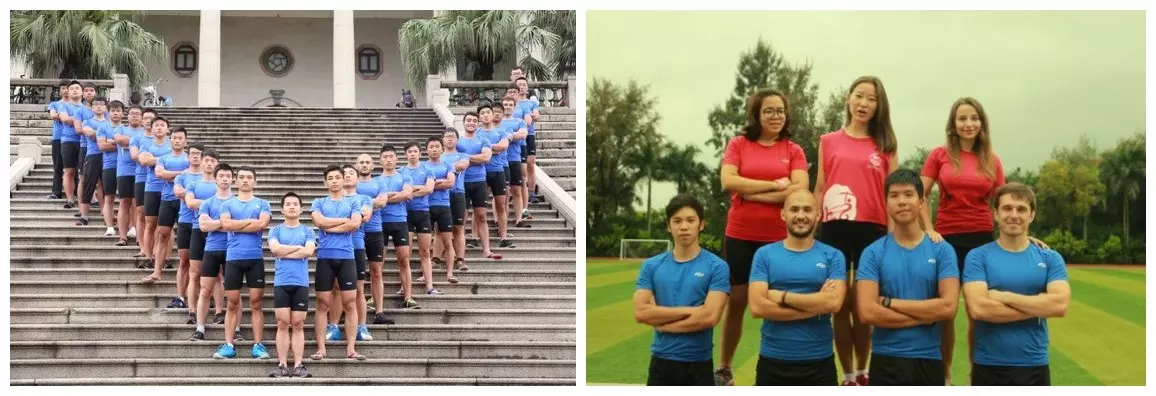
*How many members are in the Dragon Boat club?
A. There is a male team and a female team, in each one of them there are approximately 30 members including 20 rowers, the drummer, who is the guy who controls the boat, and some back-ups.
*Are you the only foreign member in the Dragon Boat club?
A. No. There are people from different countries, such as Poland, Bulgaria, Malaysia, Ecuador, Mongolia, Thailand, Taiwan and, of course, China.
*Where and when does the competition take place?
A. The competition takes place at Jimei district, this year it was on May 28th and 29th, and in total there were more than 50 teams, local and international. There are two categories, 200 meters and 500 meters. The first day was classification day and the final was on Sunday 29th. This year the Xiamen University male team claimed 6th position in the 500 meters category and 7th in the 200 meters category.
*Does Xiamen University’s Dragon Boat Association organize any other activities?
A. During the year of training, there are some extra activities organized by the Dragon Boat team, like hiking, camping, cycling, barbeques, so, besides the training, we have the chance to meet new friends and learn more about China’s lifestyle. From my point of view, it is a nice way to get into Chinese culture.

Gregory and Paula Chow Center for Economic Research Founded
On November 14th, Xiamen University formally established the Gregory and Paula Chow Center for Economic Research. The goal of the foundation is to train world leading economists, with a focus on China's economy and economic policy, to produce international first-class results and to become a leading economic academic exchange center for the cross-Straits and Asia.
The center, which will have capacity for up to twenty faculty members, will include teaching and research. Initially it will hire faculties from the School of Economics and the Wang Yanan Institute for Studies in Economics as dual, full-time hires and well-known domestic and foreign scholars as part-time or visiting professors.
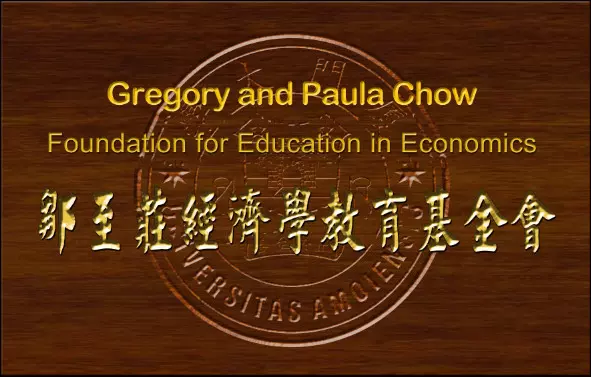
Additionally, world-renowned economist Gregory Chow has decided to donate $10 million to set up the “Gregory and Paula Chow Foundation for Education in Economics”, to further promote the development of economics education in China and, specifically, in Xiamen University. The funds for the Gregory and Paula Chow Foundation of Education in Economics comes mainly from three sources; Professor Chow and his wife Paula Chow, Chinese economics education enthusiasts and Xiamen University supporting funds. Paula Chow’s first donation has already been received. The funds will be used for the running the center and launching various academic activities.
The objective of the center is to set up a world-class education and research institution and improve the internalization and modernization of the economics discipline at Xiamen University. The center, the School of Economics and the Wang Yanan Institute for Studies in Economics will send a recruitment team to the 2017 ASSA Annual Meeting. The center is already prepared to launch a series of high level academic activities. The Xiamen University economics discipline will take this as an opportunity to attract students from world-famous universities, strengthen the existing international academic cultural, and push for the comprehensive development of the economic discipline. The center’s recruitment covers theoretical economics, applied economics, statistics and all associated sub-disciplines. The center welcomes aspiring young economics students to join the center to create a better tomorrow.
Student Tulou Field Trip
As is the tradition at this time of the semester at the Wang Yanan Institute for Studies in Economics and the School of Economics of Xiamen University , a autumn outing (秋游) was arranged for students in the WISE-SOE international master's program. This year saw the students take a one-day trip to one of the most remarkable places in Fujian province, the Tulou of Nanjing County. The Tulou are earthen buildings unique to the mountainous areas of Fujian. After a three hours bus ride and a delicious midday meal we started our walk through the Hakka buildings.

These amazing buildings were built by the Hakka people who are known for having migrated from the central region of China to settle in the mountainous areas of the southeastern part of Fujian. These rectangular and circular buildings were built using soil mixed with stones, bamboo, wood and other materials to form strong walls approximately 6 feet thick. They are known for being earthquake proof and are about five stories high. The largest of them could house up to 800 people.
These people showed off their entrepreneurial spirit: handmade crafts, local tea, and fruits were all available to sample. Passion fruit is a particularly common delicacy in the region, whose growing is favored by the good red soils in this area.
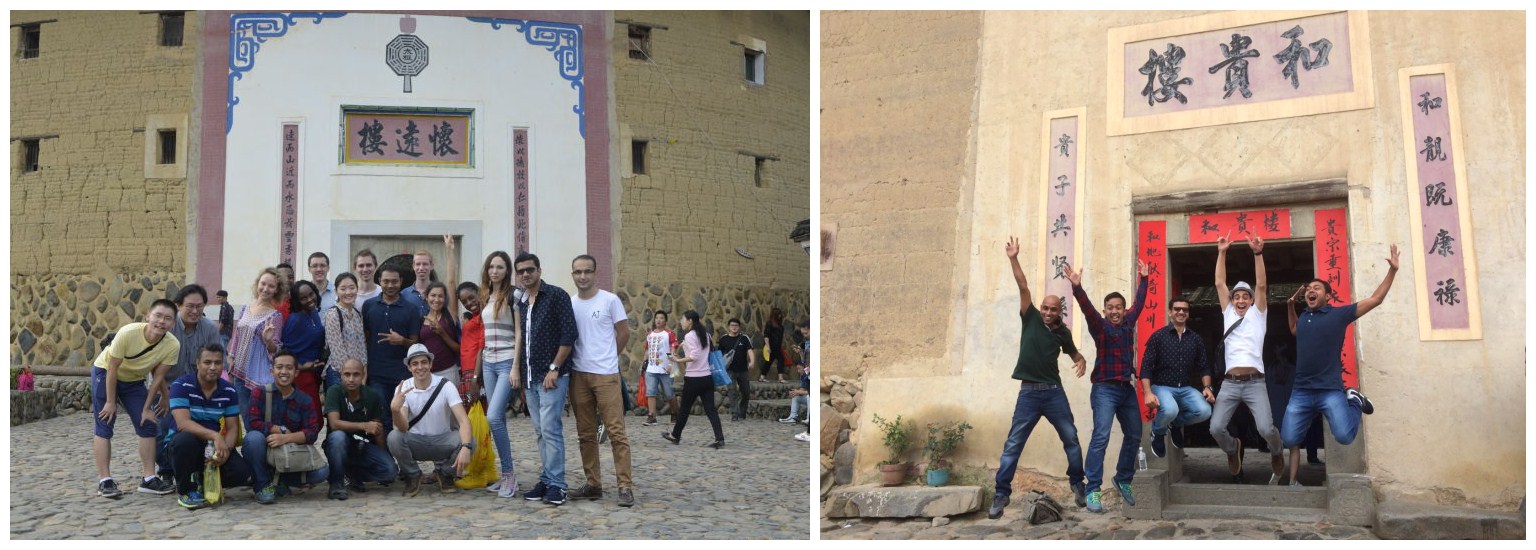
Beautiful was the day but it had to end. At the conclusion of our tour of these amazing buildings and its beautiful people, we were all left more so informed about this fascinating area of China and its history.


